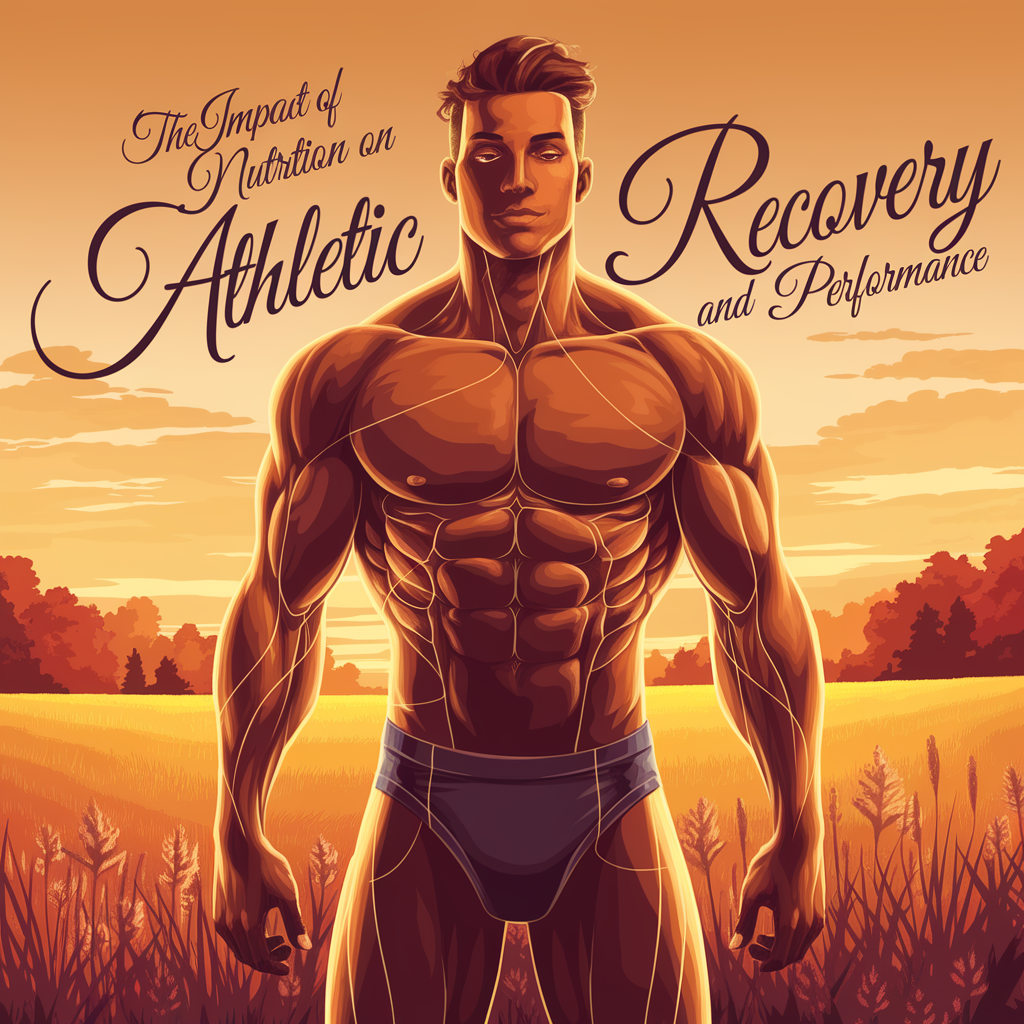The Impact of Nutrition on Athletic Recovery and Performance
Let’s face it—athletes are often considered superheroes. They leap, sprint, and endure feats that leave the rest of us gaping in awe. But even these champions of the field, track, or court can’t escape the universal truth: you are what you eat. The profound impact of nutrition on athletic recovery and performance is a narrative that transcends just fueling the body. It’s a tale woven into the very fabric of sports performance, recovery, and longevity.
As I sit here typing, I can’t help but think back to a time when my high school track coach, a grizzled veteran of the sport, would often insist, “You can’t outrun a bad diet.” At the time, I rolled my eyes—what did he know about my midnight pizza escapades? Yet, years later, reflecting on that wisdom, it strikes me how true it is. Nutrition isn’t just a side note in an athlete’s life; it’s a cornerstone.
The Science Behind Nutrition and Performance
To understand how nutrition influences athletic performance, we first need to delve into some science—don’t worry, I won’t make it too complicated. At its core, nutrition provides the energy and nutrients needed for athletes to train, compete, and recover. It’s not merely about calories in and calories out; it’s about the quality of those calories.
Macronutrients—carbohydrates, proteins, and fats—play distinct roles in performance:
- Carbohydrates: Often dubbed the body’s primary fuel source, carbohydrates are essential for high-intensity training and endurance. Think of them as the “premium gasoline” for a high-performance engine.
- Proteins: These are the building blocks of muscle. Post-exercise, protein helps repair and rebuild the muscle fibers that have been stressed during training. You could say they’re the body’s little construction workers.
- Fats: While they often get a bad rap, healthy fats are crucial for long-term energy, especially during extended activities. They’re like a slow-burning log on a campfire—keeping the flame alive over time.
Moreover, micronutrients—vitamins and minerals—are equally crucial. They support countless bodily functions, from immune support to muscle contraction. Imagine trying to drive a car with a flat tire; it’s not going to get you far, is it? Similarly, a deficiency in key vitamins and minerals can severely hinder an athlete’s performance.
Recovery: The Unsung Hero of Athletic Success
Now, let’s talk recovery. This is often the underappreciated cousin of performance. While many athletes focus intensely on training, it’s the recovery phase where the real magic happens. It’s during recovery that the body repairs itself, builds stronger muscles, and replenishes energy stores.
Nutritional strategies significantly impact recovery outcomes. Consuming a combination of carbohydrates and protein post-exercise can enhance recovery rates. Research suggests that a ratio of 3:1 carbohydrates to protein is effective for replenishing glycogen stores and promoting muscle repair. I once had a coach who swore by chocolate milk as the ultimate recovery drink. And while it may sound like a treat, studies have shown it offers an excellent balance of carbs and protein!
In addition to timing, the composition of post-workout meals matters. Here’s a quick rundown on what to focus on:
- Timing: Consuming recovery nutrients within 30 minutes to two hours after exercise is ideal.
- Hydration: Don’t underestimate the power of water! Rehydrating after a workout is critical for recovery. Some studies even suggest that electrolyte-infused drinks can aid in recovery.
- Quality: Whole foods win the race! Opt for nutrient-dense options over processed snacks.
Hydration: The Often Overlooked Element
Speaking of hydration, let’s touch on its critical role in both performance and recovery. Dehydration can lead to fatigue, decreased coordination, and impaired judgment—definitely not what you want when you’re trying to outperform the competition. It’s fascinating how something as simple as water can have such a profound impact on athletic success.
During strenuous exercise, athletes can lose significant amounts of water through sweat. A mere 2% drop in body weight due to fluid loss can affect performance. I remember an incident during a marathon where a runner, clearly dehydrated, collapsed just a few meters from the finish line. It was a stark reminder of the importance of hydration, even in the heat of competition.
So, how much water should an athlete consume? While the “8 glasses a day” rule is a good starting point, it’s not a one-size-fits-all solution. Factors such as body size, climate, and activity level all come into play. A common guideline is to drink enough to maintain clear urine color and to consume additional fluids during and after exercise.
Nutrition for Different Types of Athletes
Not all athletes are created equal. A marathon runner’s nutritional needs differ significantly from those of a weightlifter or a sprinter. Understanding these distinctions is vital for optimizing performance.
Endurance Athletes
For endurance athletes, carbohydrates are king. They require a diet rich in carbs to fuel their prolonged activities. A marathon runner, for example, might need to consume around 60-70% of their daily calories from carbohydrates. This means pasta, rice, and those delicious energy gels become their best friends. And let’s not forget the importance of electrolytes—sodium, potassium, and magnesium play crucial roles in hydration and muscle function.
Strength Athletes
On the flip side, strength athletes—think powerlifters and bodybuilders—often need higher protein intakes to support muscle growth and recovery. Aiming for 1.2 to 2.0 grams of protein per kilogram of body weight is a common recommendation. This is where lean meats, dairy, and plant-based proteins come into play. I once had a friend who, in an attempt to bulk up, consumed protein shakes like they were going out of style. Spoiler alert: they didn’t. Balance is key!
Team Sports
For athletes engaged in team sports, a mix of carbohydrates and proteins is essential. These athletes need quick bursts of energy and also require recovery strategies that help them bounce back between games or practices. I remember watching a soccer match where players were constantly grabbing energy drinks and snacks during half-time. It’s a testament to how crucial proper fueling is during the season.
Superfoods: The New Age of Nutrition
As nutrition science evolves, so does the concept of “superfoods.” These foods are nutrient-rich and are said to provide health benefits beyond basic nutrition. But are they the magic bullet for athletes? Well, not quite—but they can certainly complement a well-rounded diet.
Foods such as quinoa, chia seeds, kale, and blueberries have been touted for their anti-inflammatory properties, which can aid recovery. I recall a friend who swore that incorporating more berries into her diet made her feel like she could run faster. While that might be a stretch, there’s no denying that antioxidants can help reduce oxidative stress from intense workouts.
Personalizing Nutrition Plans
One of the most significant advancements in sports nutrition is the move toward personalized nutrition plans. What works wonders for one athlete might not be suitable for another. Genetic factors, metabolism, and personal preferences play substantial roles in determining the right nutritional approach.
Consulting with a sports nutritionist can provide valuable insights tailored to individual needs. They can help craft an eating plan that aligns with training goals, whether it be for fat loss, muscle gain, or improving endurance. I had a colleague who underwent a nutritional overhaul with the help of a nutritionist. The results were impressive—he turned from a sluggish runner into a competitive athlete!
Common Pitfalls and Misconceptions
While we might wish for a “quick fix” in the form of supplements or trendy diets, the reality is that nutrition is much more nuanced. Here are a few common pitfalls that athletes should avoid:
- Relying on Supplements: While some supplements can be beneficial, they shouldn’t replace whole foods. It’s easy to get caught up in marketing hype.
- Ignoring Individual Needs: Just because a professional athlete follows a particular diet doesn’t mean it’s right for everyone. Personalization is key.
- Underestimating Recovery Nutrition: Many athletes overlook the importance of post-workout nutrition, which can significantly impact recovery.
Remember, nutrition isn’t a one-off project; it’s an evolving journey. Listening to your body, adjusting as needed, and seeking guidance from professionals can lead to long-term success.
Conclusion: Fueling the Future
In the grand tapestry of athletic performance, nutrition is the thread that holds everything together. It influences not just how athletes perform on game day, but also how they recover and prepare for the next challenge. A well-balanced diet, tailored to the unique needs of each athlete, can mean the difference between a personal best and a disappointing finish.
As I wrap up this discussion, I can’t help but think about the countless athletes who have harnessed the power of nutrition to elevate their game. They may not wear capes, but they certainly possess the strength and resilience to inspire others. So, whether you’re an aspiring athlete or a weekend warrior, remember that every bite counts. After all, your performance today is merely a reflection of what you ate yesterday—and perhaps, a nod to what you’ll eat tomorrow.









